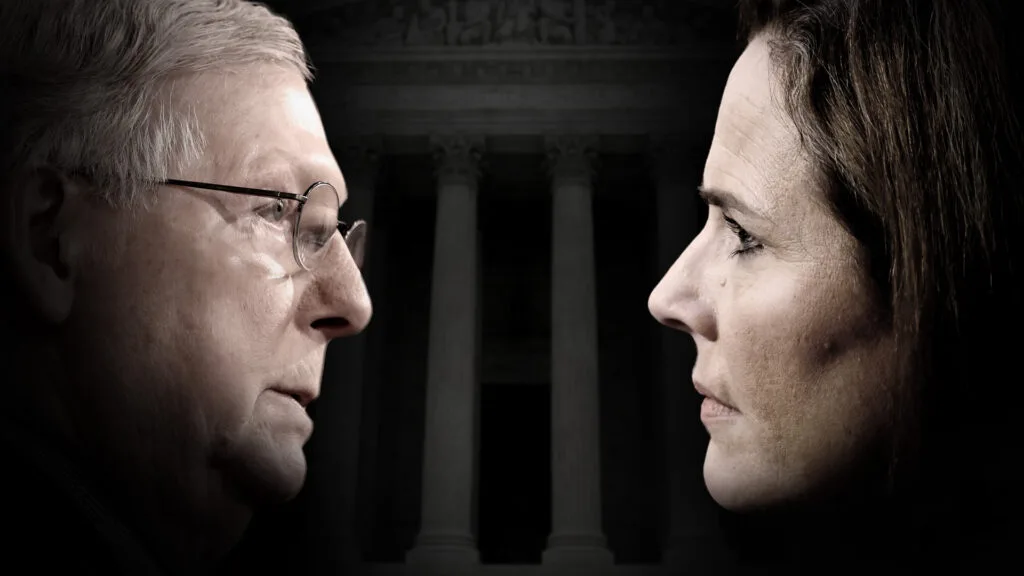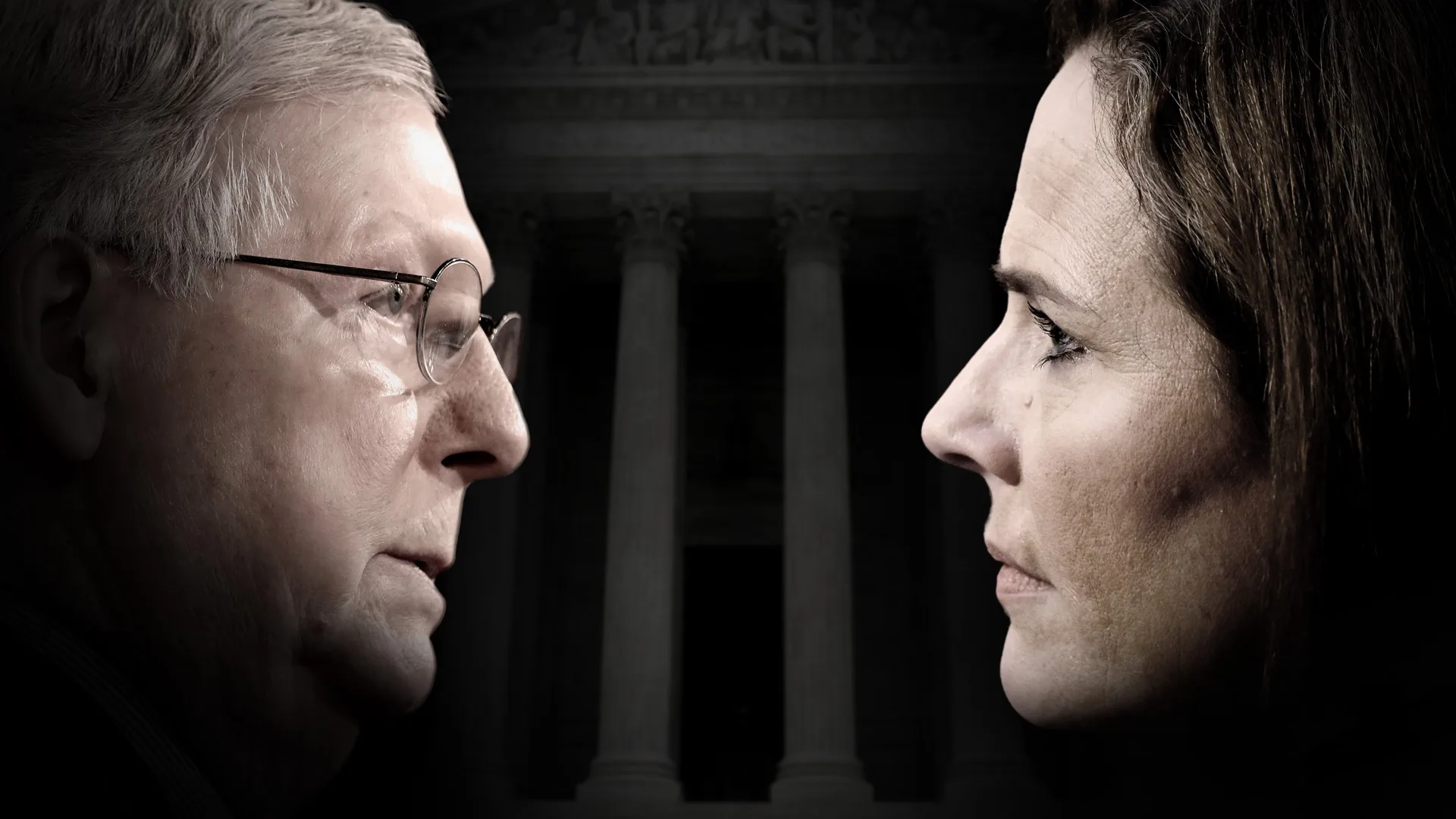In Wake of Ruth Bader Ginsburg’s Death, McConnell Reverses Course on Supreme Court Vacancy; Vows Vote on Nominee

September 19, 2020
Share
Within two hours of the Supreme Court’s announcement on Sept. 18 that pioneering liberal Justice Ruth Bader Ginsburg had died at age 87, six weeks before the presidential election, Sen. Mitch McConnell vowed in a statement that President Donald Trump’s nominee to replace her would receive a Senate vote.
It’s a markedly different approach than he took in the previous presidential election year of 2016, when a different Supreme Court justice died more than eight months before voters went to the polls to choose President Barack Obama’s successor.
In February 2016, shortly after Justice Antonin Scalia’s death, McConnell issued a statement saying, “This vacancy should not be filled until we have a new president.” On March 1 of that year, he tweeted, “The American people will choose the next president who in turn will nominate the next Supreme Court justice. #LetThePeopleDecide.”
McConnell went on to block Obama’s nominee, Merrick Garland, from receiving a confirmation hearing in the Senate.
In the 2019 documentary Supreme Revenge, FRONTLINE went inside McConnell’s decades-long effort to transform America’s highest court, including his “unprecedented” maneuvering after Scalia’s death. As the below excerpt from the film shows, McConnell saw the vacancy as a major political turning point.
“The stakes are enormous, because if you replace Scalia with an Obama appointee, then you probably have five justices on the court that are going to move the court in a much more progressive direction,” Jack Goldsmith, U.S. assistant attorney general during the George W. Bush administration, told FRONTLINE.
So, McConnell took immediate action.
“It was amazing to me,” NPR’s Nina Totenberg, who has been covering the Supreme Court for more than 40 years, told FRONTLINE. “I mean, they can say, ‘Oh, there’s precedent.’ This was unprecedented.”
It was a highly consequential move that enraged Democrats and even troubled some members of McConnell’s own party.
“To not even allow the judiciary committee to hold a hearing on his nomination just did not sit right with me,” Sen. Susan Collins (R-ME) told FRONTLINE.
“I met with Merrick Garland. I liked him,” former senator Jeff Flake (R-Ariz.), who was a member of the Judiciary Committee at the time, said. “That’s a person who would have gotten 98 votes or 100 votes in the 1990s, just a few years before.”
Ultimately, McConnell kept Republicans in line with his plan. There would be no hearings, no votes, and no formal consideration of Garland, which ultimately paved the way — as McConnell had hoped — for a Republican president to successfully nominate a conservative justice in 2017 (then another in 2018).
In a statement dictated in the days before her passing, Ginsburg said, “My most fervent wish is that I will not be replaced until a new president is installed.”
For more on how McConnell has worked to shape the Supreme Court, stream Supreme Revenge in full below or watch anytime on the PBS Video App.
Explore 39 interactive interviews from the making of Supreme Revenge through the FRONTLINE Transparency Project.

Related Documentaries
Latest Documentaries
Related Stories
Related Stories
Explore
Policies
Teacher Center
Funding for FRONTLINE is provided through the support of PBS viewers and by the Corporation for Public Broadcasting, with major support from Ford Foundation. Additional funding is provided the Abrams Foundation, Park Foundation, John D. and Catherine T. MacArthur Foundation, Heising-Simons Foundation, and the FRONTLINE Trust, with major support from Jon and Jo Ann Hagler on behalf of the Jon L. Hagler Foundation, and additional support from Koo and Patricia Yuen. FRONTLINE is a registered trademark of WGBH Educational Foundation. Web Site Copyright ©1995-2025 WGBH Educational Foundation. PBS is a 501(c)(3) not-for-profit organization.





















